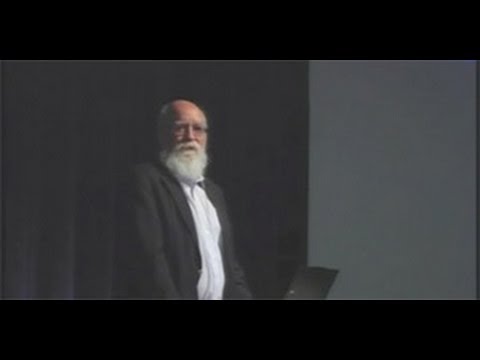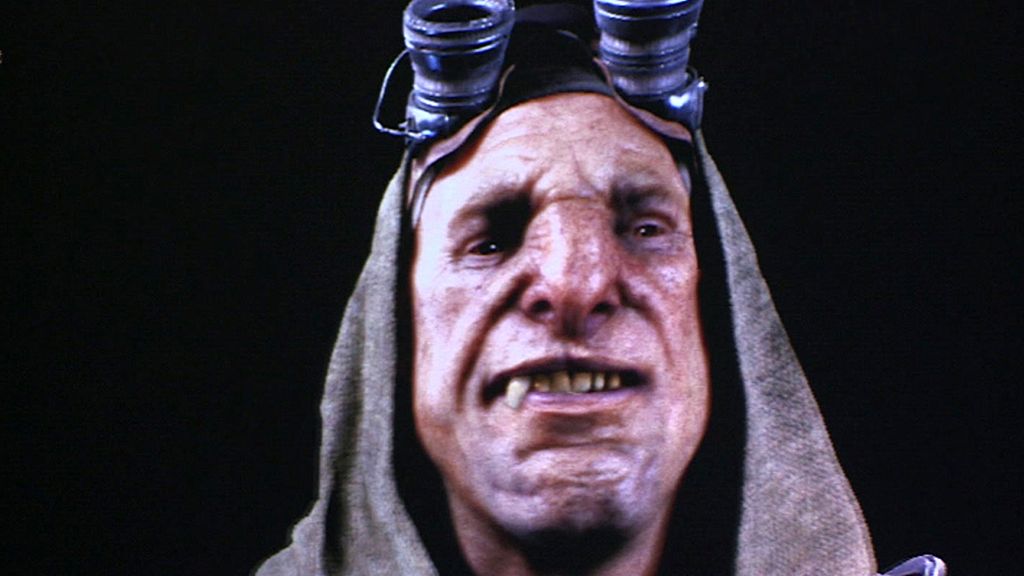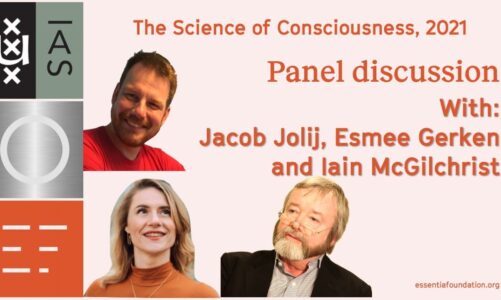Santa Fe Institute
Daniel Dennett, External Professor, Santa Fe Institute
March 16, 2010
Religions have probably changed more in the last two centuries than they changed in the last two millennia, and perhaps they will change more in the next twenty years than they have in the last two centuries. Dennett discusses religions as intricately designed cultural survivors. He examines how and why their parts work together as they do and explores how we can respond thoughtfully to the challenges they currently suggest.
Source




DCD starts at 5:57
Very interesting. This coincides with some of my thoughts when I am opposing religion. There are serious worries. Although truth, and reason are very dear to me it is still a worry which essential human well being features is religion supporting that we would have to find other means to support if religion was not there. Such as insecurities, inferiority complexes, ie; fear of life, and death.
D.D. is right we need to understand all we can about religion to see if it is a good idea to get rid of it if that is possible, or desirable. Then; if it was generally gone what kind of problems could that bring.
religions WERE invented AND they subsequently evolved, as do all designs/memes as well as genomes/genes. For example, Judaism was invented in 500BC, with the creation of new myths of Genesis and Abraham etc added to existing Psalms all dressed up around "paint by numbers" Zoroastrian monotheism coloured in with bits and pieces taken from the colourful Epic of Gilgamesh. Christianity was invented 500 years later and adopted by Constantine's mother 325 years after that and the rest is history. There are no mysteries as to how religions came about – the real mystery, the one worth studying scientifically, is why people would believe something that is so patently false? why are people so easily fooled by authorities with faked stories of fake flags?
the clue is in the word "authority". being pack animals like wild dogs, people naturally follow their leaders, if only because they know they will be killed by that leader's stromtroops if they present too much of a challenge to the leaders. you might even get nailed up on a cross for it, so as to present a fear-mongering example to the rest of the rabble. or you might be shot by a pretend lone gunman.
talking trees or not, religions didn't happen by accident. they were designed from the outset to be devices to control the hearts and minds of people. as the genreations passed, and cultures evolved (or developed if you prefer), religions changed their faces, but the underlying purpose of them remains unchanged to this very day. it is a political purpose. a control purpose. a domination purpose. an authority purpose.
whose purpose do they serve? that's simple to see: they serve their priests, their propagandists, their spin doctors, their governors, their presidents, their eminences grises, their plutocrats, their bankers and their generals.
but why do people fall for it? the beginning of the answer is here:
https://www.youtube.com/watch?v=trMv4I9bgtg&index=9&list=PL4y5WtsvtduooErlxg7h5dxQ2h2UALN0h
Excellent talk, it's subjects are applicable in understanding elements of culture well beyond religion. 🙂
What's religion for? Listen to Douglas Adams' speech An Artificial God.
What's the common cold for? There's some evidence that measles and mumps infections cause some immunity to certain kinds of cancers.
+banda5k1, Yes, my thought too: astonishingly few views, few likes, few comments ("thank God" for that one, I'd add! 😉 ), while this is one of the most informative, educational talks of the subject! 😮